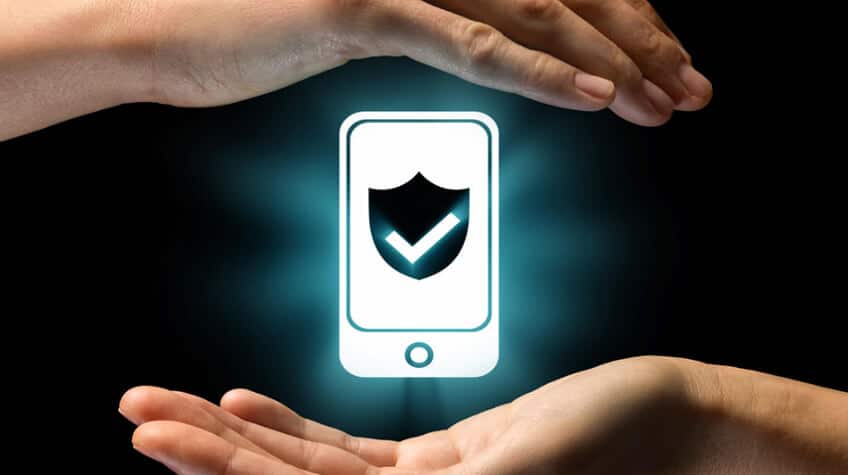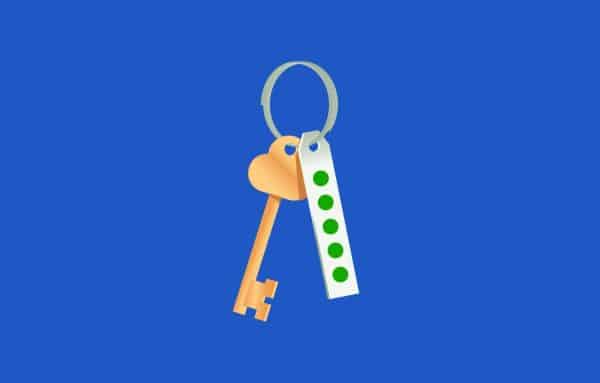Safeguarding your mobile app is of utmost importance to make sure user data stays secure. Cyber villains are always searching for slipways into digital systems, leaving users vulnerable to theft and deceitful practices.
There are several key steps and best practices you can follow to ensure the security of your mobile app data. By implementing strong encryption, authentication measures, and access control, you can safeguard sensitive user data and prevent unauthorized access or breaches.
Regular security audits and vulnerability assessments can also help you stay ahead of potential security threats. We’ll explore all of the ways you can secure your mobile app data and keep your users’ information safe.
Effective Way to Secure and Protect Your Mobile App Data
Defend your user’s data and privacy like a pro. Ensure that no one can make off with any sensitive information from your mobile app by taking our top tips seriously.
From securing access to controlling visibility, we’ve got all the tricks you’ll need to keep pesky hands away from personal details.
1. Use Encryption
To secure your mobile app data, encryption is a must. This process scrambles your sensitive data into an unreadable format, making it harder for unauthorized individuals to access it.
Encrypted data stays safe even if it falls into the wrong hands. There are various encryption methods, such as AES (Advanced Encryption Standard) and RSA (Rivest-Shamir-Adleman), so choose the one that matches your app’s needs.
Remember that you should also manage the encryption keys securely to maintain the integrity of your encrypted data.
2. Implement Strong Authentication
User authentication is an essential aspect of mobile app security. Implement strong passwords that are unique for each user account within your app.
Use password complexity requirements, such as requiring upper and lowercase letters, numbers, and special characters to make it harder for attackers to guess.
Also, multi-factor authentication (MFA) with an SMS verification code can provide an extra layer of defence for your users by requiring them to verify their identity with a unique code sent to their mobile devices.
3. Keep Your App Up-To-Date
Regularly updating your mobile app can enhance its security features significantly. New updates frequently address vulnerabilities and bugs that attackers may exploit.
Make it a habit of promptly applying security patches and updates provided by the operating system and third-party libraries used in your app.
An outdated app is a potential goldmine for attackers looking for vulnerabilities they can exploit. So, keeping your app up-to-date should be a top priority.
- Read Also: Best Mobile Payment Apps
4. Use Secure APIs
Using secure APIs should be a top priority if your app interacts with APIs. Ensure your APIs use HTTPS, which encrypts the data transmitted between your app and API servers.
5. Implement Proper Session Management
Session management is also important for securing mobile app data. These techniques ensure that user sessions are securely managed and terminated when they are no longer needed.
You should implement session timeouts and session revocations as security features. Session timeout automatically logs a user out from the app after a predetermined period of inactivity. In case of suspicious activity, administrators can revoke a user’s session remotely.
6. Apply Appropriate Access Controls
Access controls ensure users only have access to the features or data they need based on their roles and permissions.
It’s important to avoid hardcoding sensitive credentials or access tokens within the app and instead use proper authentication and authorization mechanisms.
These mechanisms should also enable administrators to limit and monitor access to certain data or features to prevent unauthorized access.
7. Use Secure Data Storage
Storing sensitive data securely is also critical to mobile app data security. Using encryption and other security measures, you must store sensitive data securely, such as passwords and payment information.
Never store unnecessary data. Make sure sensitive data is not cached or stored plainly. By implementing robust data storage security, you can protect your data and prevent unauthorized access.
8. Use Secure Communication Channels
When transmitting data between a mobile app and the server, it is imperative to use secure communication channels such as HTTPS. The HTTPS protocol encrypts data in transit, meaning any data intercepted by third parties will be unreadable.
On the contrary, unsecured channels, such as HTTP, or insecure Wi-Fi networks, expose data to interception and potential security breaches.
So, always ensure that your app’s communication channels are secure, and you’ll drastically minimize the risk of data breaches.
9. Conduct Regular Security Audits
While developing mobile apps, it is essential to conduct security audits and vulnerability assessments regularly. These assessments identify any security gaps and potential vulnerabilities which hackers could exploit.
Automated scanning tools and manual testing should be used to ensure no vulnerability goes unnoticed. Regular security audits maintain your mobile app’s security, and you don’t want to leave any loose ends in the security of your app.
10. Secure Offline Data
If your mobile app stores data offline, such as in local databases or on-device storage, you must secure it against unauthorized access.
In cases of theft or loss of the device, incorporating features like data wiping and remote data erasure to wipe all sensitive data from the device instantly is ideal.
This feature keeps your offline data secure from any potential breaches, and it shows that your app takes security seriously.
- Read Also: How To Increase Network Signal Strength
Boost Security and Protect User Data with Mobile App Best Practices
Securing user data and privacy is no simple task but absolutely necessary. Protecting your mobile app from potential breaches should be your top priority, and it’s critical to implement industry best practices to achieve this.
By utilizing strong authentication, encryption, regular updates, and secure APIs, your app can remain secure, and user data can be safeguarded from unauthorized access.
Maintaining robust access controls, encrypted communication channels, and regular security checks will help build trust and foster a safe environment for everyone related to your mobile app.
Ultimately, your dedication to data privacy will help solidify your standing as a trustworthy provider who prioritizes its user’s security.
In a world of increasingly exposed confidential information, don’t take chances with your app data. Going the extra mile to secure user privacy can make all the difference.

Legacy Benjamin is a serial SEO content writer with a half-decade of experience in the field of blogging. He is also a skilled business consultant, providing valuable insights to companies and individuals seeking growth and success. His expertise lies in crafting compelling and engaging content that captivates audiences and drives business results. For business deals, contact him


